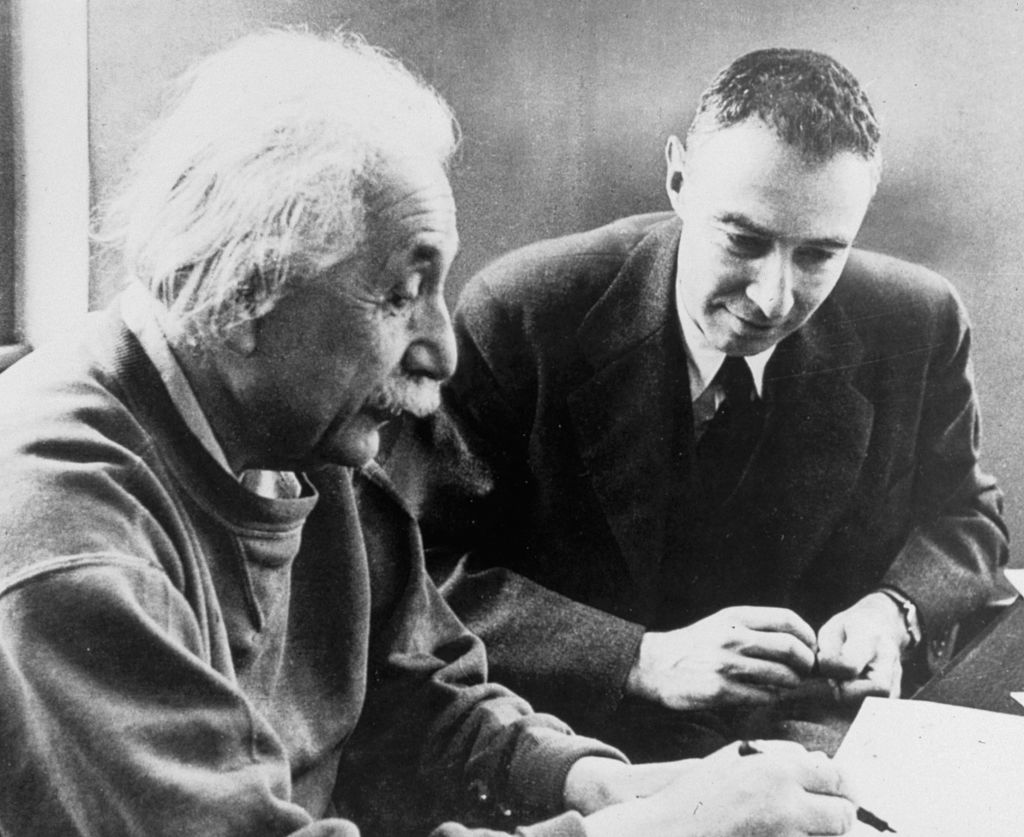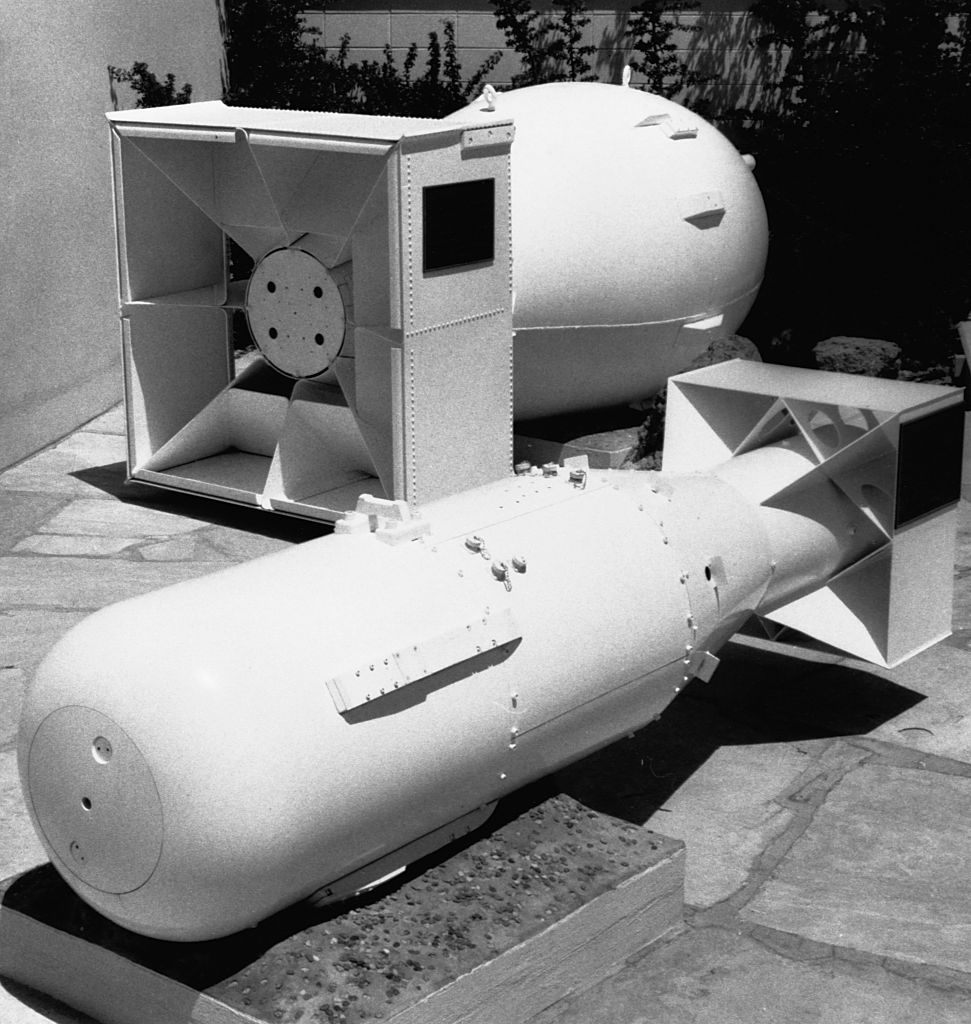Dr. J. Robert Oppenheimer, who directed and managed the building of the first and second atomic bombs dropped on Japan, ending World War II, is memorialized this summer in movie theaters throughout America. As Oppenheimer the movie opened for audiences, so too did the question of whether the atomic bomb was necessary. It’s a question most often asked the first two weeks in August as a remembrance for some and an indictment for others. For those whose loved ones came home without suffering the inevitable carnage of an invasion of the Japanese mainland in 1945, dropping atomic bombs on Hiroshima on August 6 of that fateful year and Nagasaki three days later was justified. For others who benefitted from an academic distance, destroying the two Japanese cities was unnecessary since the Land of the Rising Sun would have surrendered soon enough.
Some Believed the Atomic Bomb Was Unnecessary
Among those who believed there was no pressing need for the nuclear bombs used on Japan was General and former President Dwight Eisenhower, who argued in 1963, “’The Japanese were ready to surrender, and it wasn’t necessary to hit them with that awful thing. “That wasn’t merely hindsight. Eisenhower made the same argument in 1945,” Timothy P. Carney wrote ten years ago in the Washington Examiner on the 68th anniversary of the Nagasaki bombing. But Eisenhower was viewing the use of nuclear weapons on an enemy through the lens of combat in Europe; though just as horrific as the fighting in the Pacific, the enemy-on-enemy combat dynamics of the island-to-island fighting were different. In the European theater, German civilians and soldiers were not driven with a fanatical zeal to please an emperor whom they deified, where civilian women with children in their arms jumped to their deaths from cliffs as they did on Saipan and Okinawa. Nor did the Nazi-led forces, as a tactic, use suicidal “banzai” charges with no hope of success, leaving hundreds of corpses littering the battlefield. For the Third Reich, fighting to the death for the sake of the Fuhrer Hitler was not a cultural imperative. But it was for the Japanese.
The Atomic Heritage Foundations’ historical profile “Japanese Mass Suicides” explains: “Back in those days of 100 million Japanese citizens supposedly being prepared to fight to the very last man, everybody was prepared for death. The doctrine of total obedience to the Emperor emphasized death and made light of life,” quoting Kinjo Shigeaki, a Japanese Army survivor of Okinawa. American decision-makers were hearing similar reports throughout the Pacific theater supported by the evidence: constant kamikaze attacks on the US naval fleet. “American military leadership was affected by the ‘ferocity of Japan’s no-surrender policy,’” according to historian John W. Dower.
 Yet a contemporary view that the atomic attack on Japan was needless persists. Such is the view found in a reprint in Military Times of a commentary first published in The Conversation by Tara Sonenshine, professor at Tufts University and former undersecretary of state for public diplomacy and public affairs in the Obama administration. Her article’s headline reads, “78 years since Hiroshima – lessons of unnecessary mass destruction.” Sonenshine goes further than most in declaring the bombing of Hiroshima and Nagasaki as not necessary by inferring that had the US not developed the atomic bomb, there would not be nuclear proliferation today. “What might have been a single year of nuclear weapons development ushered in decades of nuclear proliferation – a challenge across countries and professions,” she asserts.
Yet a contemporary view that the atomic attack on Japan was needless persists. Such is the view found in a reprint in Military Times of a commentary first published in The Conversation by Tara Sonenshine, professor at Tufts University and former undersecretary of state for public diplomacy and public affairs in the Obama administration. Her article’s headline reads, “78 years since Hiroshima – lessons of unnecessary mass destruction.” Sonenshine goes further than most in declaring the bombing of Hiroshima and Nagasaki as not necessary by inferring that had the US not developed the atomic bomb, there would not be nuclear proliferation today. “What might have been a single year of nuclear weapons development ushered in decades of nuclear proliferation – a challenge across countries and professions,” she asserts.
The Better Outcome Fallacy
But what evidence in the historical record of geopolitical or global warfare supports that conclusion? Sonenshine falls prey to the logical fallacy of hypothesis contrary to fact, “offering a poorly supported claim about what might have happened in the past or future, if (the hypothetical part) circumstances or conditions were different,” according to Logically Fallacious.Com. Sonenshine invokes the regret of Albert Einstein, who confessed in a letter published by Newsweek: “Had I known that the Germans would not succeed in producing an atomic bomb, I would never have lifted a finger.” But Einstein did not know the Germans wouldn’t produce the bomb. To the contrary, at the time he and others were quite certain the Germans could build one and were working diligently toward that end. He did what was prudent with the information he had.

(Photo by © CORBIS/Corbis via Getty Images)
All manner of alternative outcomes could have resulted had the US not developed and dropped two atomic bombs. The war in the Pacific would have continued, eventually resolving with some manner of surrender after months of conventional bombing, killing more Japanese. And, of course, thousands upon thousands of US servicemen would have died in an amphibious invasion of Japan had that been the decision. Or perhaps the Soviet Union scientists might have developed a nuclear weapon sooner and held the US hostage to threats of annihilation, with a world order vastly different than what actually transpired. Or maybe the US would have developed and tested the bomb quickly if the USSR had the bomb, and a stand-off with the Soviets would have resulted in mutually assured destruction as an option, which would put us right where we are today.
Dropping the Bomb Achieved the Ends
Eisenhower’s lament over the Hiroshima and Nagasaki bombings being unnecessary since the Japanese would have surrendered has the same failed logic. The idea the Japanese would have capitulated was tested. After the Potsdam conference in July 1945, the Allies declared Japan must surrender “unconditionally.” The “Japanese leaders flatly rejected” the ultimatum, according to a teaching narrative from Harry S. Truman Library and Museum. After the first atomic bomb, nicknamed “Little Boy,” was dropped on Hiroshima, there was still no indication of Japan’s surrender. The second bomb, “Fat Man,” was then dropped on Nagasaki. On August 14, five days later, Japan surrendered unconditionally. Japan might have done so without the atomic bomb’s persuasion, but it did not.
A kinder, gentler world might have been the result if the US had not created the atomic bomb, but maybe we’d be right where we are, having wandered a different path. Speculating on what might have been in an attempt to learn not to repeat the mistakes of the past has value. Unfortunately, national security policy decision-makers are always faced with the here and now, not the there and then.




